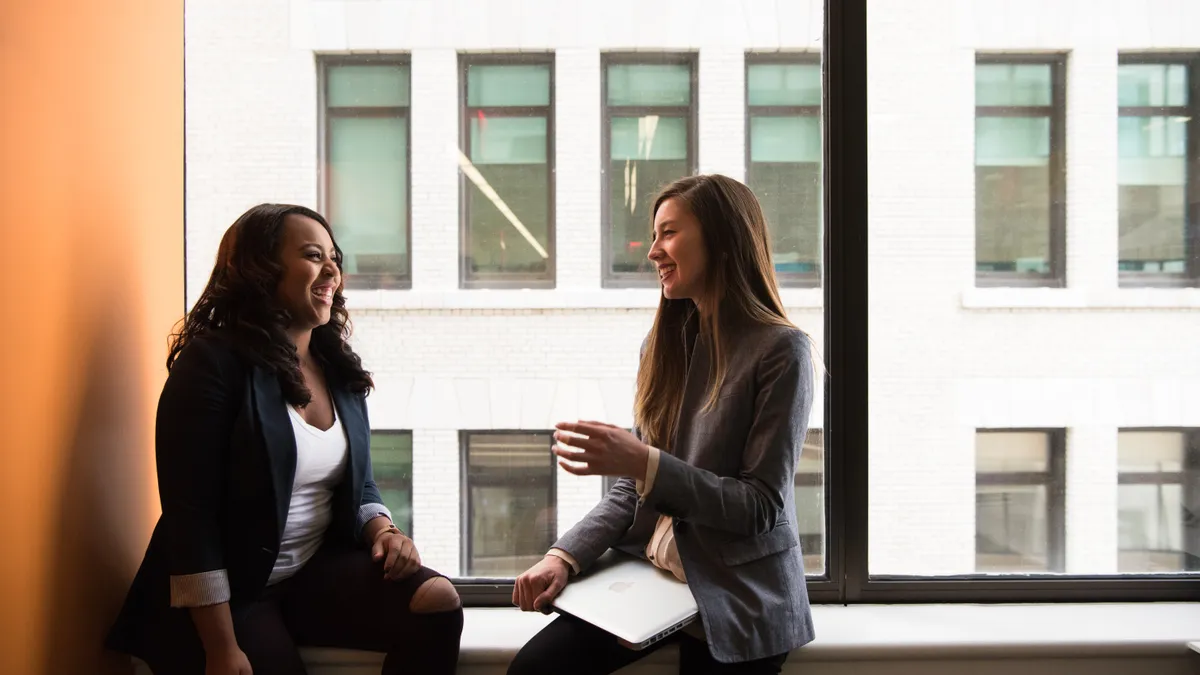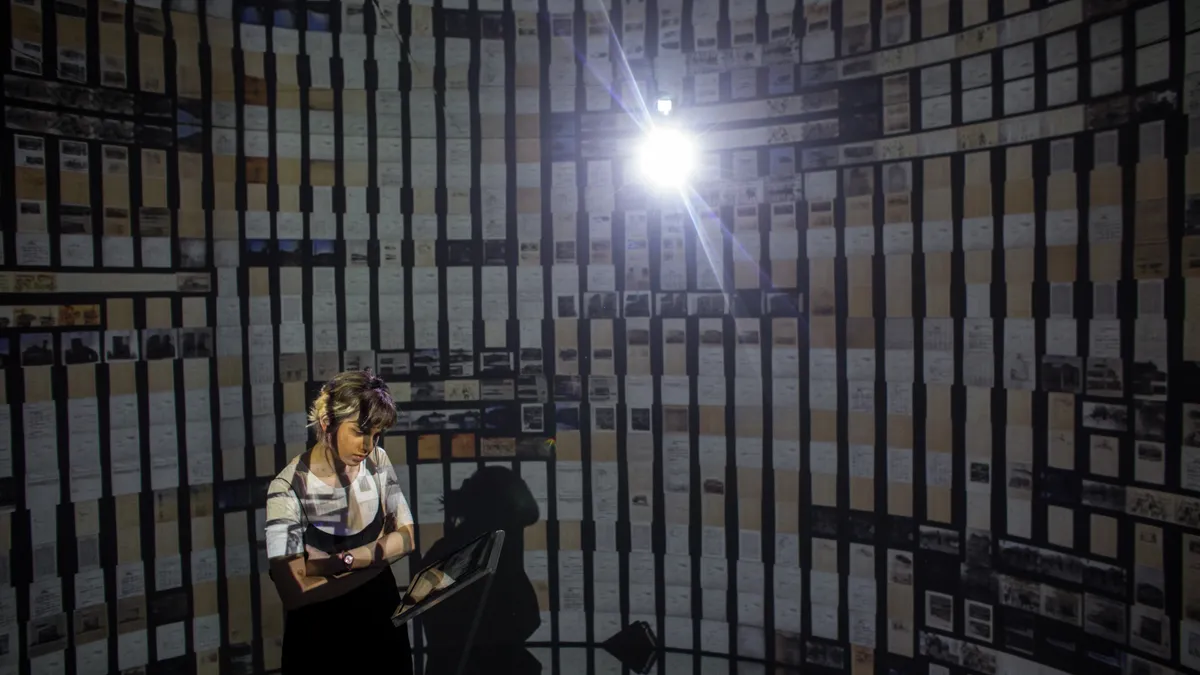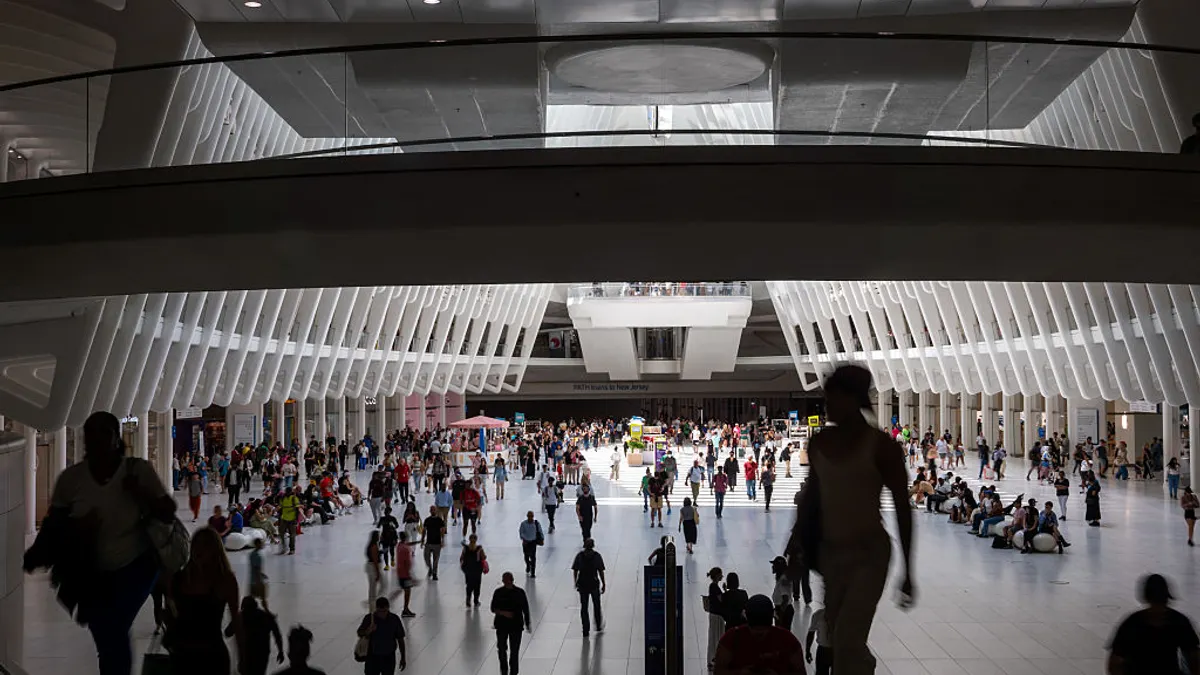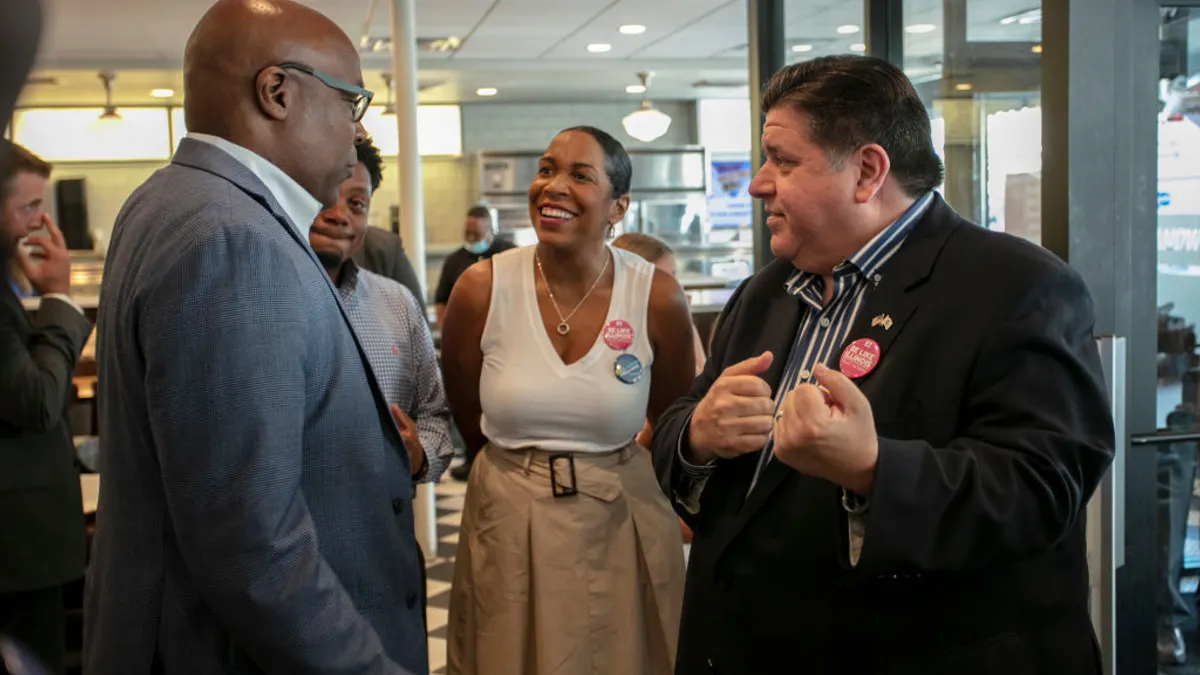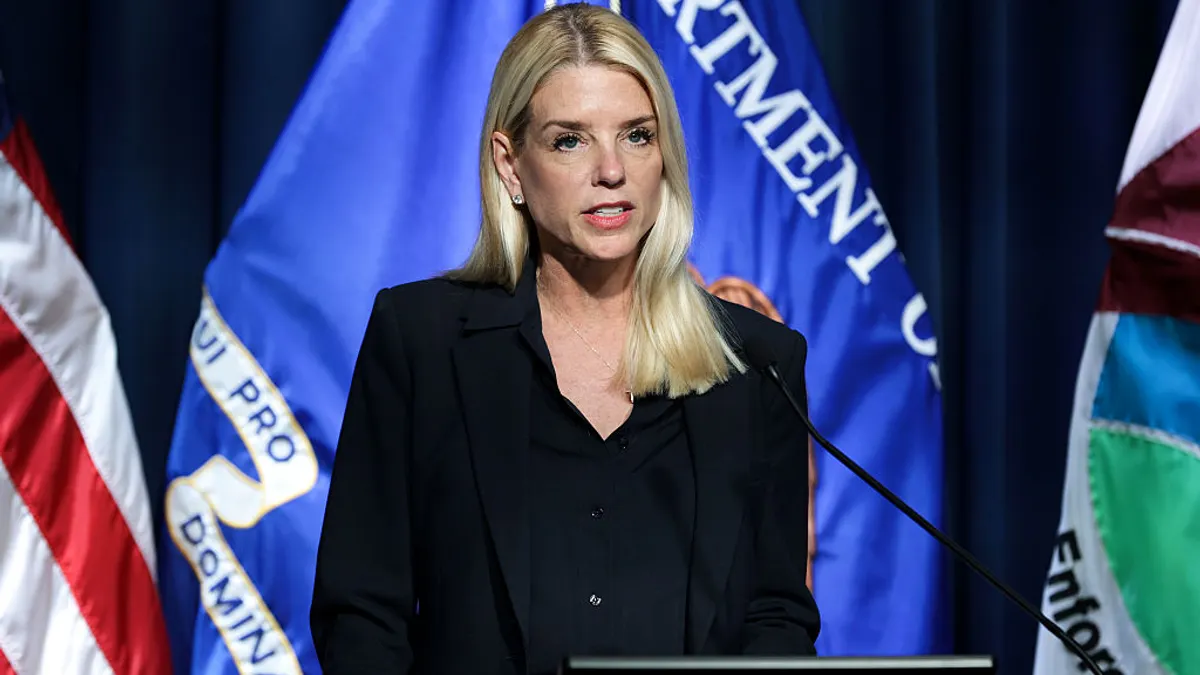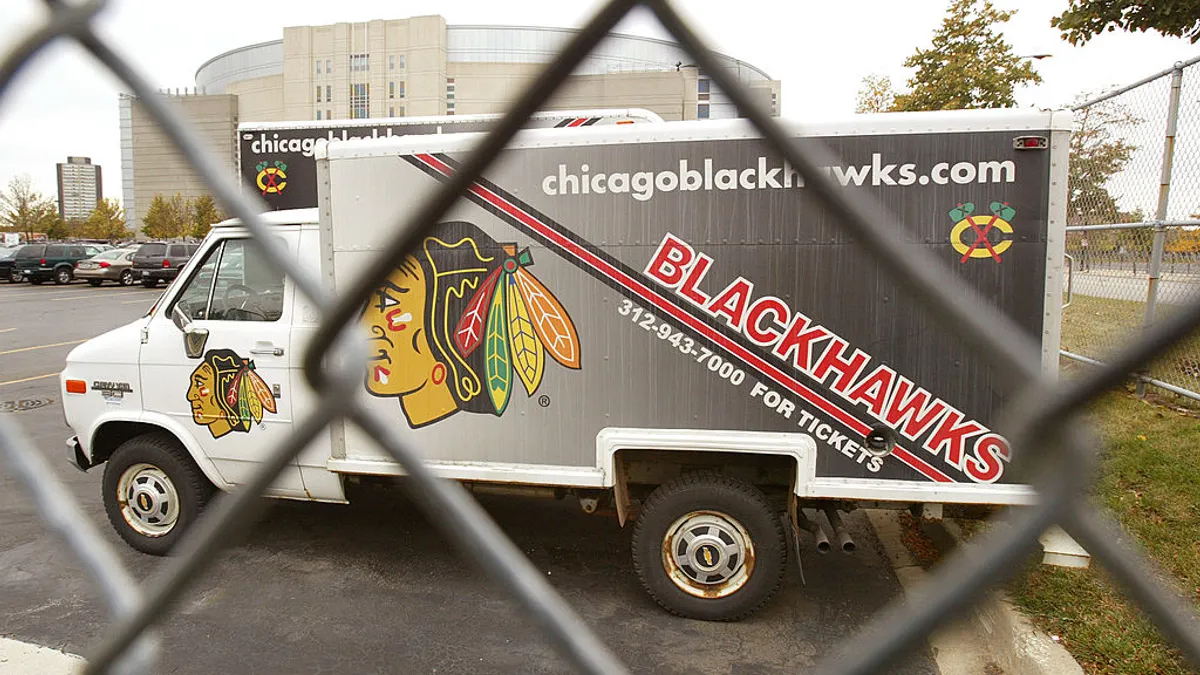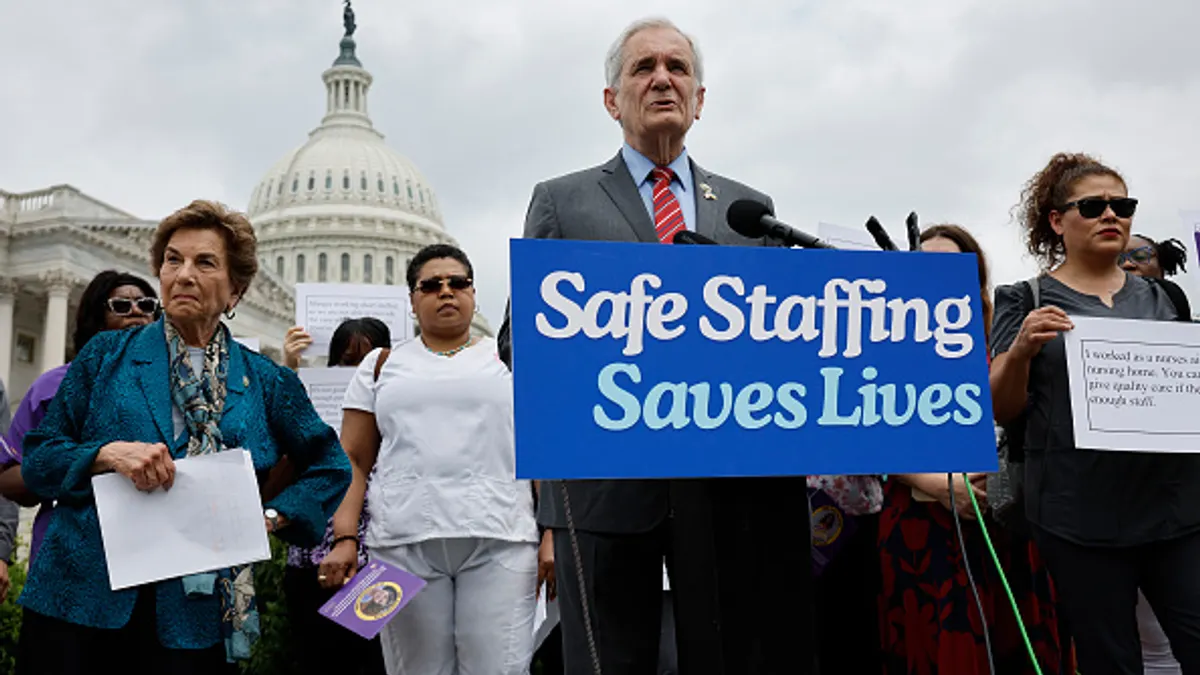The rationale behind switching from "D&I" to "DEI" may seem subtle. But take it from Marissa Vargas, Liberty Mutual's VP and director of DEI strategy and planning: The "E" is everything.
"Equity is truly the link between the 'D' and the 'I,'" Vargas told HR Dive. The DEI professional has worked at Liberty Mutual since 2012, transitioning into a role as diversity and inclusion programs manager for the company in 2014. Two years later, she became the diversity and inclusion director of marketing communication and graduated to director of DEI strategy and planning in 2019.
Alongside Global Diversity, Equity and Inclusion Officer (GDEIO) Dawn Frazier-Bohnert, Vargas has spent the last several years working to give every employee a voice at Liberty Mutual. In practice, this looks like a collection of ERGs and last year's announcement of a multiyear plan to increase representation of Black, Indigenous and people of color and women at Liberty Mutual from the top down. Vargas explained how these initiatives, in tandem with a strong sense of what "equity" means, comprise her strategy for driving change. Questions and answers have been edited for length and clarity.
HR Dive: What are your responsibilities in regard to DEI strategy and planning? What does that look like in practice?
Vargas: Strategy and planning, it's really: How do I help our management team and our GDEIO? How do I help them to really create our annual DEI enterprise plan? And how do I help them to implement it? How do I really help to create alignment and synergies on programs, as well?
What are some accomplishments in this lane that you're proud of?
Vargas: I would say that one of the things that I had a bit of a hand in with Dawn Frazier-Bohnert. I was really fortunate as, last year, we created a multiyear plan. In the past, I've been a part of the ERG's and working with them, that's something I've also been very proud of.
As we think about diversity, equity and inclusion, [Frazier-Bohnert] really felt the need for holistic strategy. And that we reach all areas of the business. One of the early pieces of that also was how we define "diversity," and we say, "Diversity is about all of us." That wide definition has been so helpful, because it really helps employees to know that it is about you — because you, right, everyone needs to be on the same page. This is important and it requires all of us.
One of the programs, Men As Allies, really speaks to that idea. It's an initiative that officially launched in 2016, and it's really to help engage our men in the DEI work. They are definitely a critical component. The goal was to ensure that men have the resources they need to develop gender awareness, as well as collaborate effectively with our female colleagues.
As that initiative has morphed over the years, the focus now is on really expanding that allyship — across race and ethnicity, and many other dimensions of diversity:
-
Amigos@Liberty & Allies is dedicated to connecting and supporting Liberty Mutual's Hispanic and Latinx community.
-
LEAAP@Liberty & Allies is really around empowering Asian and allied professionals, about Asian cultural strengths and positive impacts in the business.
-
And we have LEADA@Liberty & Allies, which is around employees of African descent and allies — fostering growing and learning together with ongoing support and professional development.
-
We also have our Pride@Liberty & Allies, which helps to promote an inclusive working environment where our LGBTQ employees and allies have both a sense of community and opportunity.
-
WE@Liberty & Allies really empowers and elevates our women through equitable opportunities, and increasing individual and organizational success,
-
And then we have Valor@Liberty & Allies, as we think about seeking to engage our military veterans and allied community.
-
And Able@Liberty, which is our newer ERG launched in April 2021 and promotes an inclusive and equitable culture, and fosters awareness and understanding for people with disabilities, caregivers and family members.
Can you talk about what it means to have allies showing up in these conversations as well? Can you offer any perspective to HR pros in regard to making sure allies are also doing the work?
Vargas: I think that really helps to have that community increasing the network and having other allies that can help to support. People are working to really share their voice. [Ask,] "How can I support in the sharing of that voice? How can I support the journey of other colleagues?" I believe you can be an ally to any other group of someone that's different than you. [Without allyship,] we couldn't increase your network. You can learn and grow from each other. And that's very needed.
Speaking of which, learning has been a big conversation in the past year with DEI work. What are some resources or initiatives that Liberty Mutual has to encourage learning?
Vargas: I want to talk about one that actually is not only internal but now is external. One of the programs that we have is our Inclusion In Action e-learning video series. We know you need diversity, equity, and inclusion all working together in tandem. You can bring together a high-performing diverse team. But without giving all employees that sense of belonging and valuing their contributions, you're not fully going to leverage those diverse perspectives and talents.
The video series includes nine inclusive communication skills and exercises. It really helps to teach employees how to connect in an authentic and honest way. And they really helped to provide this practical advice. One skill that's part of that is around "trying on," [as in] helping employees to "try on" a different person's perspective.
There's another one that's around taking a "step up" or "step back" to allow all voices to get included. Maybe you need to "step up" if you're someone who maybe is more of an introvert, and doesn't always get to share. Maybe you need to "step back" if you tend to speak often, so you can make room for other voices and invite others in.
Circling back to what you said earlier about how diversity, equity and inclusion work in tandem: The "E" in DEI. Can you talk about when and where the conversations took place to include the "E?"
Vargas: We announced this multiyear plan to advance DEI at Liberty in [September] 2020.
One of the actions that we had put to increase diversity, equity and inclusion was to add an "equity" to our name. "Equity" means fair treatment for employees of all backgrounds and cultures. That includes identifying and removing possible institutional barriers that may prevent full opportunities and participation for all.
We're really working to ensure that equity and inclusion for all employees across the company. We know there's always more work to do in that, but we want to be able to fully leverage a wealth of our unique backgrounds, strengths and experiences. And so we like to say as well, "Equity is truly the link between the 'D' and the 'I.'"
You made the announcement about Liberty Mutual's multiyear in September 2020. Now that you're approximately eight months into it, how are you feeling about the progress you're making?
Vargas: I would say that we are making progress and there's always more progress to be continued. We always like to say, "There's more work to do." And that we want to obviously look at our progress that we're making. So, I think that we are really going forth and working to make this plan a reality every day.
What are some wins that you've had in the past eight months?
Vargas: I think one of our newer ERGs [Able@Liberty], which is really helping the community for people with disabilities and caregivers, that launched in April of this year. That was a pretty exciting milestone.
What kinds of conversations were had that led to the formation of Able@Liberty?
Vargas: I think that we want to make sure we're really representing employees' voices and different communities. As we think about this community, it is an important community, and I know that often disability can touch many people's lives. I think that's an important factor to consider.
One of the initial series that Able@Liberty is focusing on this month is spearheading a speaker series dedicated to Mental Health Awareness Month, with some programming that touches the impact of mental health across diverse communities.
Going back to the "equity" part of DEI, what does the ideal equitable place workplace look like from your perspective? What kinds of equity benchmarks should HR professionals be thinking about?
Vargas: As I think about an equitable workplace, I really go back to the definition around fair treatment, access and opportunity. I think those are so key. [HR professionals] are going to have to look at, you know, measures for equity at their company and what could be. How would they measure it, if they're looking at their systems, processes and account practices? Taking a look at how can they create more equity so that all employees feel that.
Did you find that there was a particularly helpful method for engagement? For example, did you find that maybe people were responsive to emails, or to Slacks, or to speaker series?
Vargas: I think it is actually kind of having a multi-pronged approach, across all of the areas that you listed. It's not one thing, but it really is having the holistic strategy that our GDEIO laid out.
DEI across many different areas — not only talent but development and communication. How are your DEI efforts really tied to the work you're doing with your customers and community, and helping you understand and get closer to them? Especially as we know many of our demographics, across many industries, are changing for companies.



